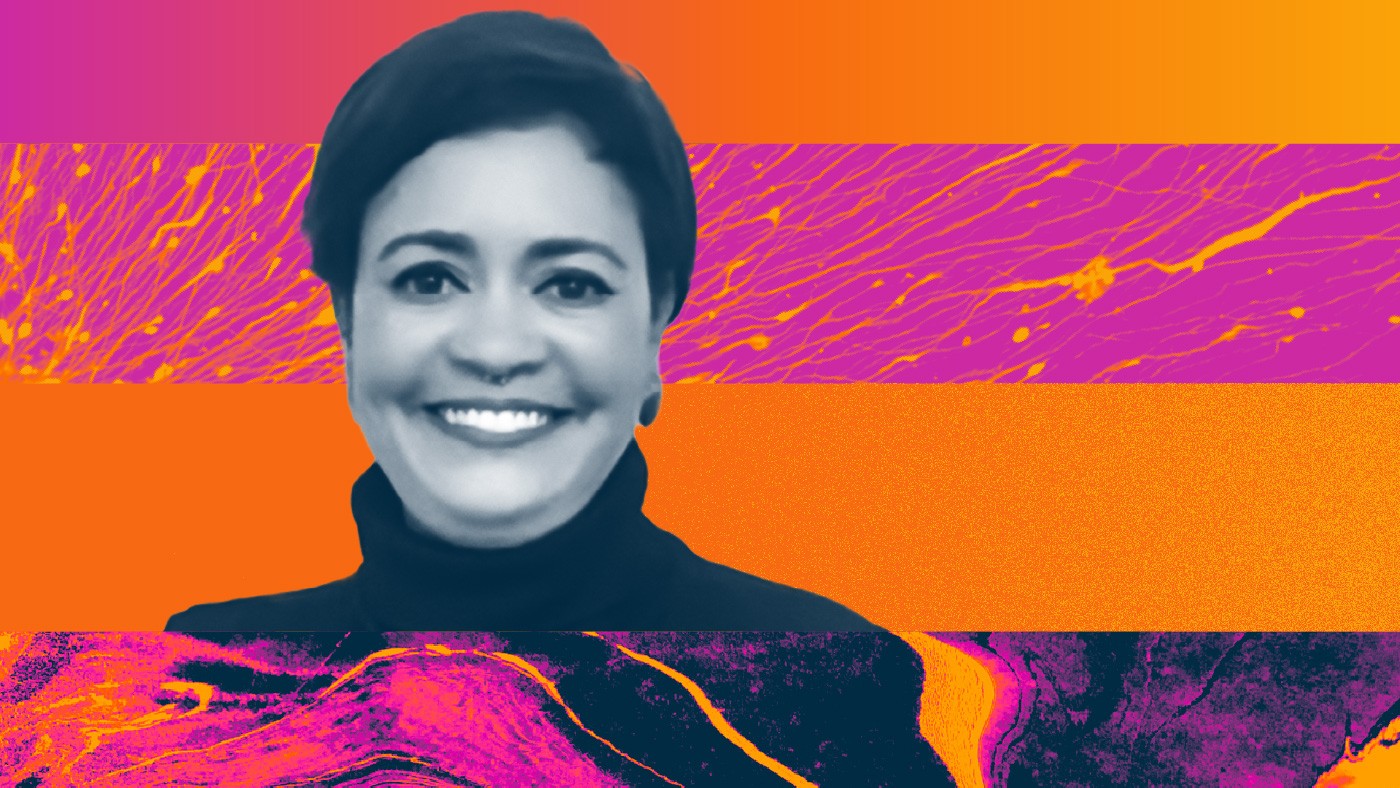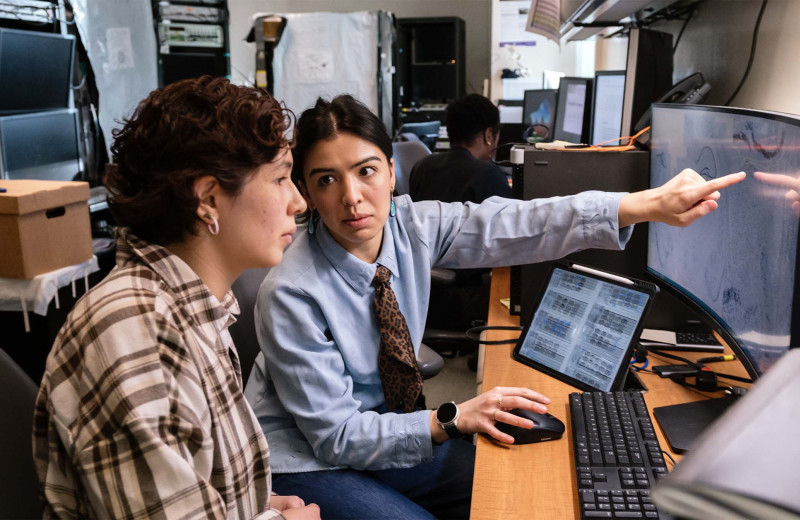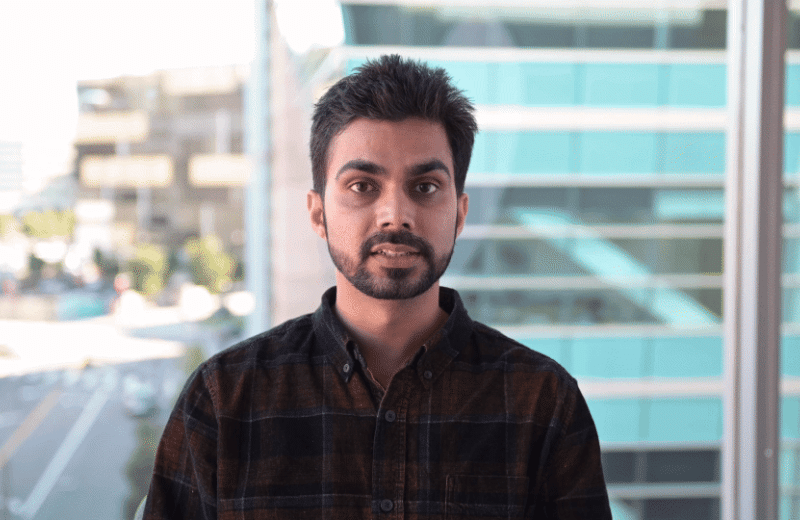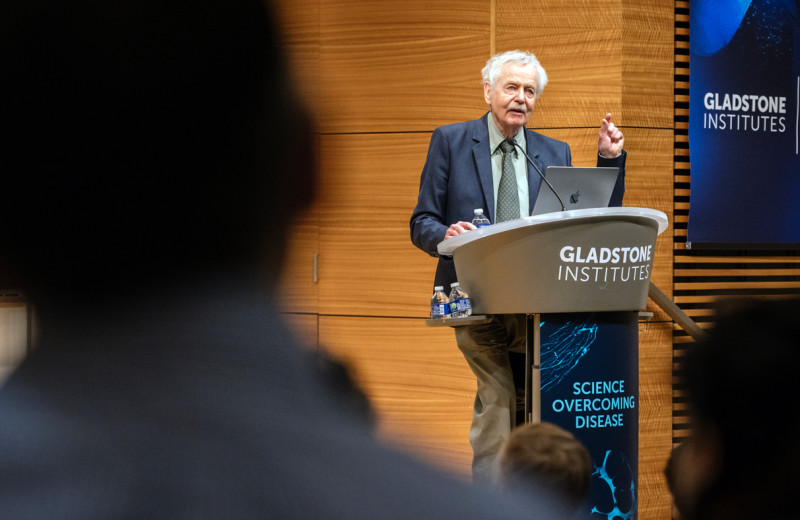Gladstone NOW: The Campaign Join Us on the Journey✕

Science Educator Gabriela M. Zabala Alemán is a panelist for Out in Science 2022.
To celebrate Pride Month, Gladstone is featuring panelists from Out in Science by asking them to answer a few questions.
Gabriela M. Zabala Alemán (they/them, she/her) is a Boricua science educator in San Juan, Puerto Rico. They previously conducted research on learning and decision-making at the National Institute of Mental Health and worked for Learning Undefeated, a non-profit organization that provides life-changing STEM experiences to under-resourced communities in Maryland.
What is the current focus of your work?
I’m currently working as an independent STEM tutor, focusing mainly on chemistry and biology from middle school to introductory college level courses. I provide online tutoring as well as in-person lessons, which I’ve found works to my and the students’ advantage since there are different types of learners. Virtual sessions work very well for socially anxious and students on the autism spectrum that do not wish to turn on their cameras!
My focus is student-centered lessons, where we (the student and I) explore the student’s needs, strengths, skills, and interests. I’ve found that having a personal connection to students makes for more engaging lessons, reduces stress, and empowers learners to ask for what they need, and share struggles and successes.
Why is it important to you to be out in science?
For me, it’s always been about bringing your whole self to work! By being my most authentic self, I feel empowered, and it can be very empowering for other people in the community. It’s also important to be out in science because we can’t hide any of our identities, they shape who we are and what we do—highlighting our identities also creates solidarity, which is important now more than ever. Embracing our multiple identities makes for more rich and diverse projects that benefit our community and society as a whole.
How can organizations create a more inclusive and supportive environment for LGBTQ+ scientists?
Getting rid of tokenism and rainbow washing is a great starting point. On too many occasions, I’ve been the only enby (nonbinary) Latinx person in the room, and the pressure to “represent” my intersectionality feels insurmountable. But how do we get rid of tokenism? I feel that it starts at the hiring process, where the job posting should use inclusive language and state clearly non-discriminatory policies and organizational values.
I would encourage organizations to talk openly about LGBTQ+ issues, be it through publishing blogs, social media posts, or the research topics that should be studied that pertain to our community. Respecting people’s pronouns and names is also of utmost importance, as is continued education for staff and promoting people from the LGBTQ+ community to decision-making positions. In general, fostering an inclusive and diverse organization is the way to go.
Have you had a mentor or role model who has been particularly impactful on your career?
One of the best mentors I’ve had is Fany Messanvi, PhD, who I met at the National Institutes of Health when she was a postdoc, and I was a graduate student. Even though she’s not part of the LGBTQ+ community, she showed me how to embrace my intersectionality, respect my and other people’s boundaries, and pay special attention to my scientific interests, as they would guide my career path.
She was the person to always say “stay curious” and “follow your passion.” Thanks to her, I noticed that bench work wasn’t for me and that I should go into direct service. That is, I chose to become a science educator and mentor because of her pressing questions and assertive guidance.
Can you recommend a television show that you think provides an inspirational or exciting view of the future for queer communities?
I would definitely recommend Netflix’s Sex Education. Throughout the series, there’s a plethora of queer teenage characters on the beautiful path of self-discovery, their gender identities, sexuality, and relationships in general. I feel that this show depicts the complicated realities of these teenagers, bringing to the forefront LGBTQ+ issues. This show is an inspiration because it gives me hope that a beautiful queer future is possible if we stand up for ourselves and are willing to commit to lifelong learning.
What was your first job?
My first job was as a professional folkloric dancer for the Boricua Dance Company Gíbaro de Puerto Rico. I remember being one of the youngest dancers in the company and feeling like an imposter. My confidence grew with time and practice and that’s something that translated to my academic endeavors. I got to travel representing Boriken in Greece, Spain, and Turkey, amongst other countries. I absolutely love dancing and doing it professionally for over a decade was very fulfilling!
Voices of Outstanding Mentorship
Voices of Outstanding Mentorship
Three recipients of Gladstone’s Outstanding Mentoring Award share their personal approaches to mentorship and reflect how this passion has shaped their own growth as leaders.
Profile Roan Lab Graduate Students and PostdocsMeet Gladstone: Shyam Jinagal
Meet Gladstone: Shyam Jinagal
Shyam Jinagal explores how genetics, aging, and regeneration shape the heart—and how those insights could one day restore heart function after injury.
Graduate Students and Postdocs Profile Cardiovascular Disease Srivastava LabA Sculptor of Modern Regenerative Medicine
A Sculptor of Modern Regenerative Medicine
Among his myriad accomplishments, Rudolf Jaenisch—winner of the 2025 Ogawa-Yamanaka Stem Cell Prize—was the first to demonstrate the potential of induced pluripotent stem cells to treat disease.
Awards Ogawa Stem Cell Prize Profile Regenerative Medicine Stem Cells/iPSCs



